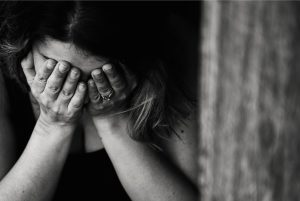 At times, people are involved in a cycle of abuse and may not even realize that they are victims of domestic violence. Not only do victims tend to believe that emotional abuse does not count as domestic violence, but abusers often do not know that their actions of emotional abuse counts as domestic violence.
At times, people are involved in a cycle of abuse and may not even realize that they are victims of domestic violence. Not only do victims tend to believe that emotional abuse does not count as domestic violence, but abusers often do not know that their actions of emotional abuse counts as domestic violence.
Domestic violence involves any form of abuse including physical abuse, financial abuse, stalking, mental abuse, verbal abuse and emotional abuse. A person who commits an act of domestic violence does not need to make physical contact with a victim. Physical abuse is not more harmful than mental or emotional abuse. In fact, because emotional abuse cannot be seen, victims tend to have a great deal of difficulty coping with their situation, as the signs cannot outwardly be seen as easily as when people are suffering from physical abuse.
Every state has laws criminalizing domestic violence and in addition providing protections of victims. In 1991 the New Jersey Prevention of Domestic Violence Statute was enacted. Domestic violence does not describe one specific crime but is generally defined as a pattern of physical, verbal, economic, psychological or sexual abuse that can include but is not limited to threats, intimidation, isolation, financial control and/or humiliation, which is generally intended to gain or maintain power and control over the victim. Individuals stuck in a cycle of abuse are not considered an equal by their abuser. The entire relationship is focused on the abuser attempting to gain control over the victim.
What is emotional abuse in domestic violence?
People often misunderstand emotional abuse and whether it constitutes domestic violence. Emotional abuse is domestic violence. Psychological harm often referred to as mental abuse is typically considered a form of emotional abuse. Often these terms can be used interchangeably. Both emotional abuse and mental abuse can cause the same results, such as low self-esteem, anxiety, eating disorders, and even post traumatic stress disorder in certain situations. Frequently, mental abuse and emotional abuse are accompanied by physical violence but do not need to be in order to be considered abuse.
Because physical abuse is the most visible form of abuse, people often mistakenly believe that physical abuse is the only form of domestic violence.
Emotional abuse generally relates to a person’s feelings. When a person is emotionally abusing another individual, they are generally focusing on that person‘s feelings and emotions to control them through means of manipulation. Frequently, this involves punishment and efforts to control the victim’s behavior. Instead, mental abuse focuses on manipulating the victim’s way of thinking including the victim’s outward views and approach to other situations in the victims life.
Emotional abuse often results in a diminishment of the victim’s mental health. A person engaging in emotional abuse often times may use verbal abuse, such as threats of physical abuse, to achieve a certain desired result or outcome.
If you have a domestic violence issue in New Jersey, contact the legal experts at DeTorres & DeGeorge. Our legal team can answer all of your questions concerning emotional abuse and any other instances of abuse that you may be experiencing. The first step in protecting yourself is understanding your rights and availing yourself of the protections that are available to you. We can help you navigate this process for yourself and your children so that you can live safely and no longer in fear of your abuser.
The New Jersey Coalition to End Domestic Violence’s 24-hour free hotline for victims and their supporters is 1-800-572-SAFE. Call today if you need help. Your life matters.

 START LIVE CHAT
START LIVE CHAT









